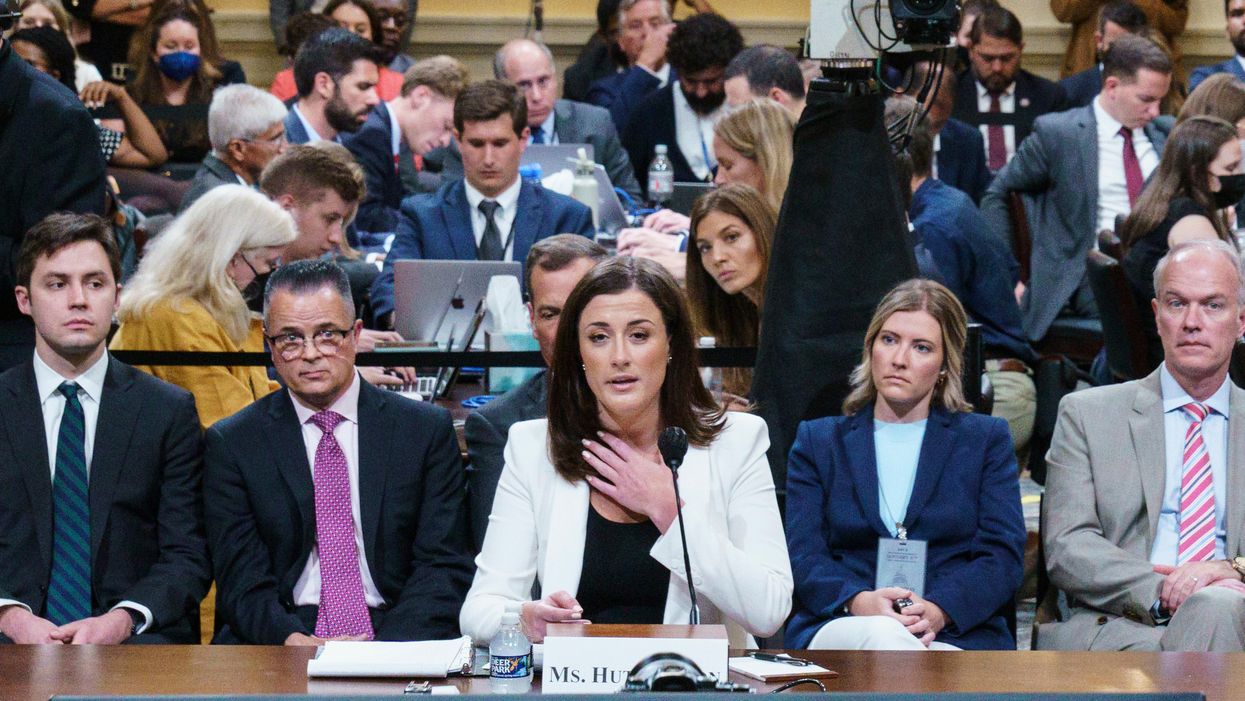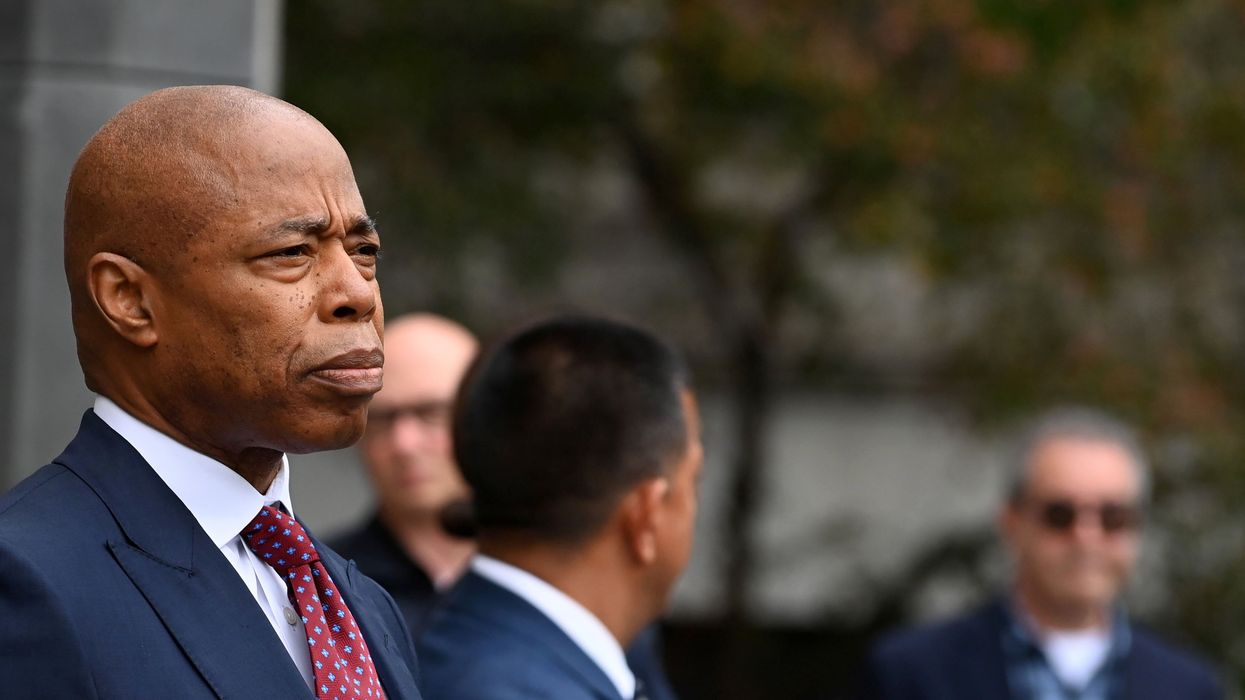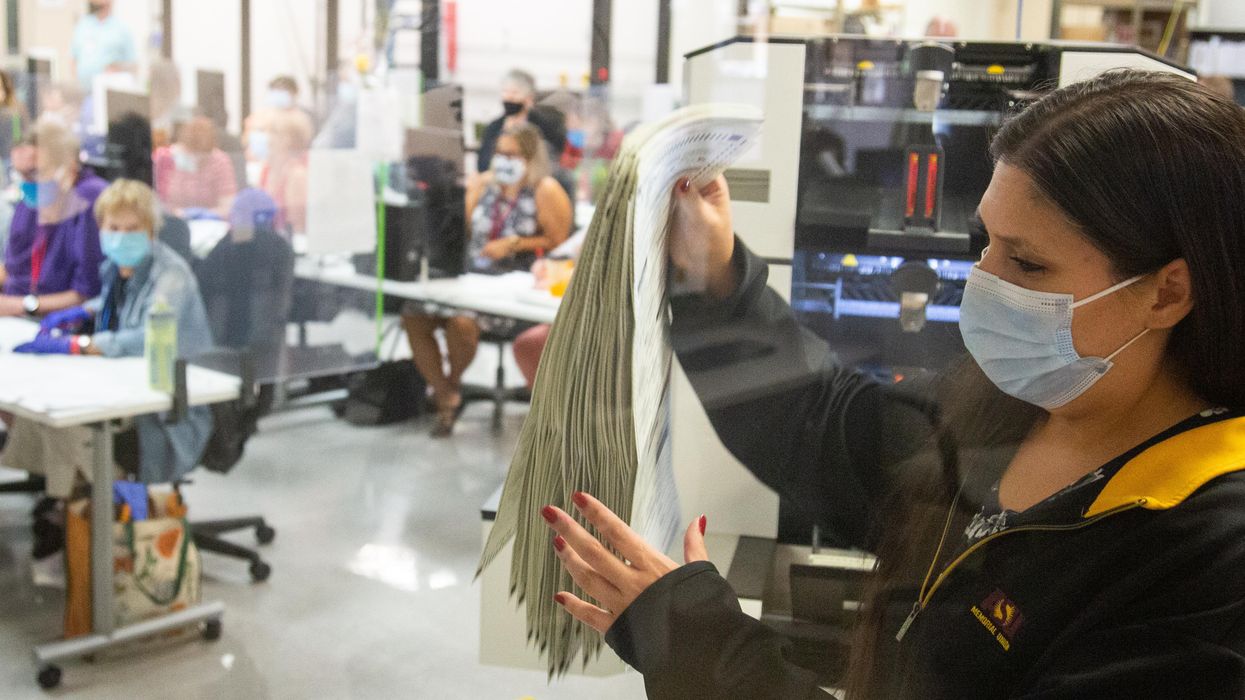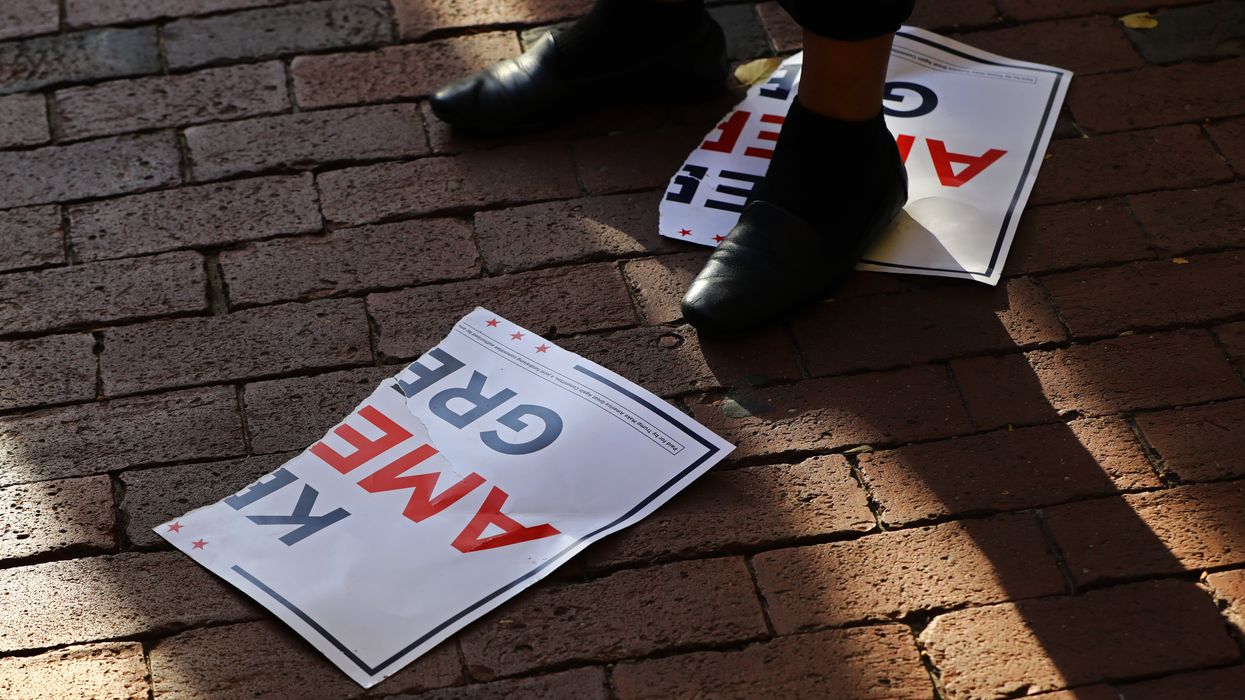Roig is the chief network weaver at The Horizons Project and the chair of the board of the Alliance for Peacebuilding.
“How did we get to this point?”
That’s how the third day of the Jan. 6, 2021, hearings began on June 16. Many Americans are asking the same question, with a mix of exhaustion, exasperation and alarm that our country has devolved to the heightened levels of violence and dysfunction that the select committee has outlined thus far. It has been painful to rewatch the violence that took place at the Capitol, but also to hear the personal stories of the violent threats and intimidation unleashed on elections officials and poll workers throughout the country.
One of the thorniest questions of our times is: How will we come together to reckon with the clear and present danger of the growing authoritarian threat in the United States, while also healing a fractured nation dealing with collective trauma, distrust, outrage and despair? The answer is that we must do both. While there are clearly urgent legal and political imperatives required in the short term, actions and organizing focused on truth-telling and justice will not be unfolding in a vacuum. They must form the foundations needed for long-term cultural and institutional transformations to take place.
As we engage in conversations about the Jan. 6 hearings throughout the nation, therefore, we have an opportunity to hold these tensions between accountability and healing, recognizing the importance of upholding the rule of law – while at the same time acknowledging the need to find ways to come together as a nation – as the only way forward. The path of truth, justice – and eventually societal repair – that will come after the hearings will be a long and messy road, but how this work unfolds with care for each other as citizens is an equally important ingredient to protecting our democracy.
First things first. The United States of America is a democratic republic founded on the rule of law, and in this system of government it is imperative that those who commit crimes must be held accountable, even –and especially – those given the privilege of serving at the highest levels of political power. The fact that these hearings are taking place at all is, in some ways, a triumph of our democratic institutions.
Although the committee appears to be narrowly focused on the actions and responsibility of former President Donald Trump and his top advisors, authoritarianism is a systemic threat that goes beyond any one person or persons. Whatever its partisan sources, the panel’s presentation of the evidence behind the attack on the Capitol is important for the American people and for future generations to know the truth. Our vigilance against the authoritarian threat must also include accountability at all levels of government and other sectors in society (such as media, corporations or faith leaders) who continue to spread or tolerate the same dangerous lies about the 2020 elections, or who are actively undermining both the integrity of and access to our electoral process.
For example, the Texas GOP recently voted in a platform that denies the validity of President Biden’s election. In New Mexico, a three-person commission in Otero County refused to certify the results of the primary elections, citing unsubstantiated complaints of Dominion voting-tabulating machines. By shining a light on the Jan. 6 hearings, we are acknowledging that the threats to America’s free and fair elections continue to spread throughout the country and must be confronted and defeated, especially from a larger number of courageous leaders within the Republican Party and conservative movement. In the near term, our gaze will have to shift from the hearings to focus on how the threats to democracy are metastasizing at the state level.
And yet as we work to establish the truth, we need to also prepare to heal. As we head into the midterm elections and rightly rely on both legal and political processes to demand accountability for anti-democratic rhetoric and behavior, our organizing tactics should also be grounded in a long-term democratic vision and commitment to societal healing that will lead to healthy pluralism.
Distinct from holding political leaders accountable is how we engage with our fellow citizens about these “threats to democracy,” including those who may be having a different reaction to the hearings. Some are completely certain, and some are confused, about the 2020 elections. Many people no longer believe in the democratic system – that every American has a right and freedom to vote for a leader of their choice – because they no longer trust any politicians. All of us are being fed a media diet of fear of the other side and are falling victim to cynicism of political theater.
Spanning from the Covid pandemic to economic insecurity, these are difficult times for many Americans, who are feeling excluded, isolated, humiliated, unsafe, angry or just doing their best to get by. Calls to “please watch the hearings” are often met by this segment of society with either disdain or frustration that the issues affecting their daily lives are not being prioritized. Reflecting on the importance of the hearings with this population can be quiet, one-on-one work. As Zimbabwean activist Pastor Evan Mawarire recently emphasized, “people don’t care how much you know, until they know how much you care.”
Lies cannot be allowed to stand in a healthy democracy. Building a bigger coalition of trusted messengers becomes some of the most important work in effectively discussing the current threats to our democracy. This is not appeasement, nor blindness to ongoing injustices and oppression in our society. This is an acknowledgement that one of the most tried and true tactics of any authoritarian regime is to divide and conquer, and to keep people confused and distrustful of each other. Part of the equation of protecting democracy, therefore, is the work it will take to break this cycle, to reinforce our shared identities as Americans, to rise above partisanship and to see past any one electoral cycle.
Programs like those led by Urban Rural Action, and the United Vision Project are creating bridges and helping Americans see that we can come together to find common ground and take action on issues we care about most, without centering our ideological identities. These kinds of programs directly combat authoritarianism that succeeds when people feel like they are powerless to change things. The way that we organize together across difference, centering restorative relationships within our communities where multiple and intersecting identities are celebrated in all our complexities, allows Americans to remember that we belong to each other, and that we all want to live in a society that functions where we are free to work, love and flourish.
We cannot merely vote our way out of the current democratic crisis, but the Jan. 6 hearings provide an entry point to build upon our common values and vision for the country. This moment is an important opportunity for a broader pro-democracy coalition to form. Citizens must feel that their voices matter and are counted, so voting integrity and participation is essential to democracy. At the same time, saving democracy cannot be a partisan undertaking and we cannot engage with our fellow citizens only as voters. Thinking only in terms of “persuadables” or “the moveable middle,” for example, can be a dehumanizing mindset that ignores the complexities of Americans’ beliefs and values. That, in turn, keeps us in a trap of “us versus them.” Experts who study successful pro-democracy movements have shown that progressives and conservatives must come together to stop those who are actively changing the rules of the game to stay in power undemocratically.
The time to act is now. Heeding the warning that our democracy is on the “knife’s edge” as Judge Michael Luttig stated in his written testimony, requires what some peacebuilding experts refer to as a “ multiple parallel approach ” – acknowledging the diversity of actors and initiatives to be galvanized within complex systems. Accountability for crimes committed must come out of the hearings. Political leaders must be more courageous and supported to expel the anti-democratic forces from within their ranks. All of us must vote and support pro-democracy candidates in the upcoming elections. And, at the same time, citizens must center our shared longer-term goal of healing our toxically divided nation if we are going to uphold our democracy.



















